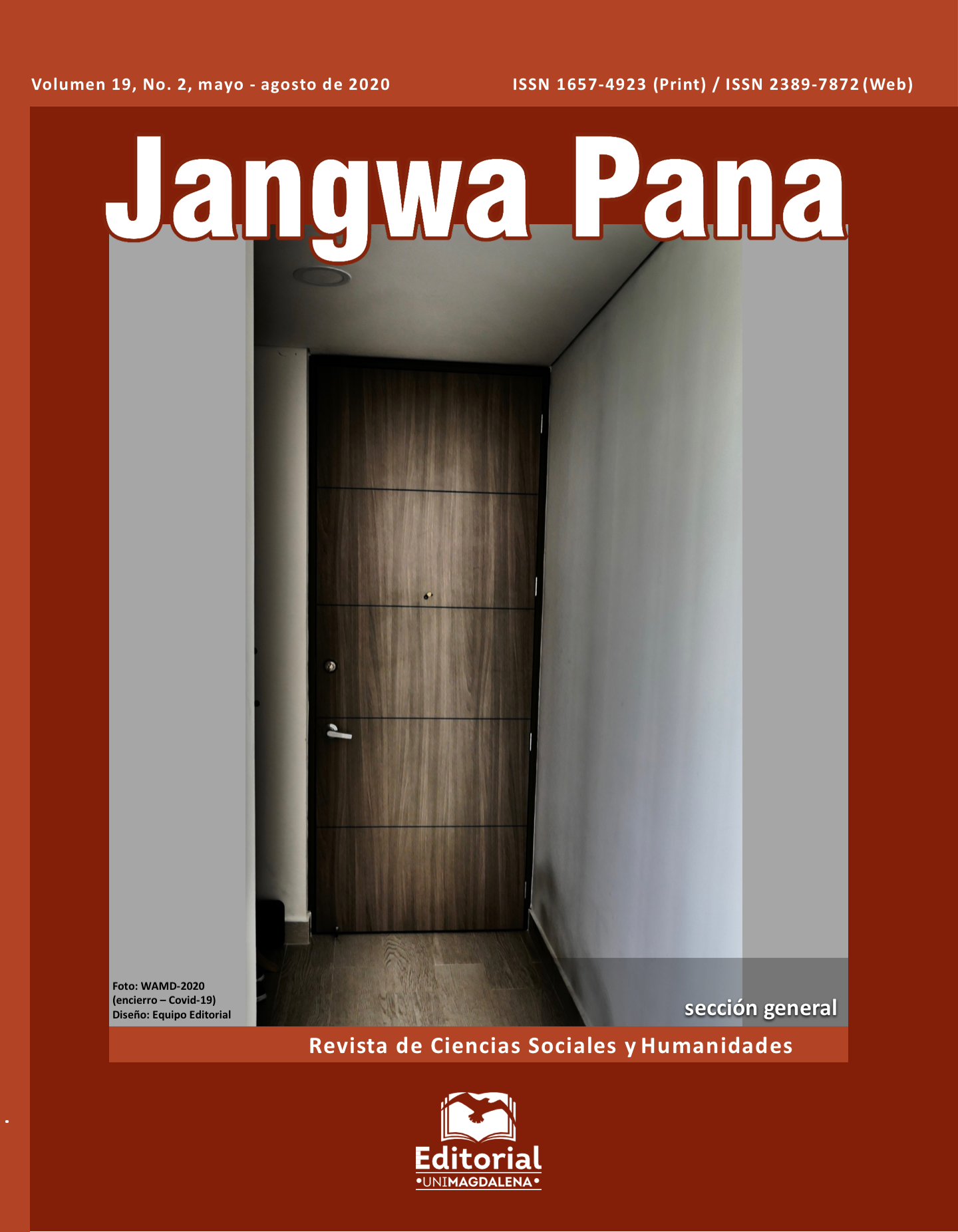The narrators of the oral tradition: the gift imposed by divine spirits
Main Article Content
Abstract
Downloads
Article Details
References
Agamben, G. (2005). Profanaciones. (F. Lebenglik, Ed., F. Costa, & E. Castro, Trads.) Buenos Aires: Adriana Hidalgo.
Ávalos, É. (2019). Procedimientos epistemológicos empleados desde los estudios culturales para convertir la tradición oral en objeto de estudio. En J. Rodrizalez, XIV Congreso Internacional de Literatura: Memoria e Imaginación de América Latina y el Caribe (Por los derroteros de la oralidad y la escritura). Memorias (pp. 318-326). Pasto: Universidad de Nariño.
Ávalos, É., & Vásquez, L. (2017). La Moledora, el último mito de los Pastos. Quito: Abya-Yala.
Bruner, J. (2013). La fábrica de historias. Derecho, literatura, vida. (L. Padilla, Trad.) Buenos Aires: Fondo de Cultura Económica.
Cornejo, A. (2003). Escribir en el aire. Lima: Latinoamericana Editores.
Derrida, J. (1971). De la gramatología. (Ó. Del Barco, C. Ceretti, & R. Potschard, Trads.) Buenos Aires: Siglo Veintiuno.
Eliade, M. (2015). Lo sagrado y lo profano. (L. Gil Fernandez, & R. Díez Aragón, Trads.) Barcelona: Paidos.
Halbwachs, M. (2004). La memoria colectiva. (I. Sancho-Arroyo, Trad.) Zaragoza: Prensas Universitarias de Zaragoza.
Havelock, E. (1994). Prefacio a Platón. Madrid: Fuenlabrada.
Lévi-Strauss, C. (1999). Mito y significado. (H. Arruabarrena, Trad.) Madrid: Alianza.
Mato, D. (1992). Narradores en acción. Problemas epistemológicos, consideraciones teóricas y observaciones de campo en Venezuela. Caracas: Academia Nacional de la Historia, Fundación Latino.
Mauss, M. (2012). Ensayo sobre el don. (J. Bucci, Trad.) Buenos Aires: Katz.
Propp, V. (1977). Morfología del cuento (Tercera ed.). (L. Ortiz, Trad.) Madrid: Fundamentos.
Vich, V. (2001). El discurso de la calle. Los cómicos ambulantes y las tensiones de la modernidad en el Perú. Lima: Red para el Desarrollo de las Ciencias Sociales en el Perú.

